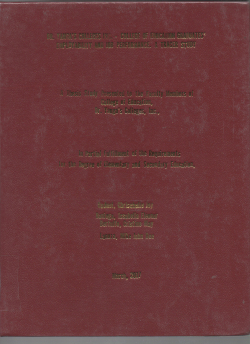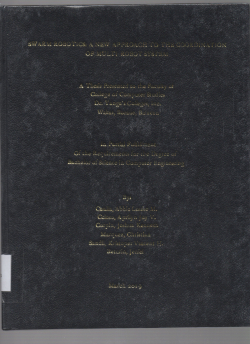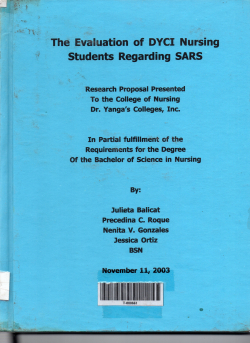An Explorative Study on the Experiences of Alternative Learning System (ALS) Graduates as they Enter Tertiary Level: A Phenomenological Approach

Type
Thesis
Authors
Category
COED
[ Browse Items ]
Subject
ALS Graduates
Abstract
It is undeniable that education is considered to be of immense significance thereby mandating the government to establish a system that might be used to mount problems regarding education in the Philippines. In lieu of this, a program termed as Alternative Learning System (ALS) was launched by the Department of Education (DepEd) to help out-of-school youth, people with disabilities, rebels, industry-based worker and other people who desire to achieve competence and for those people who cannot afford formal schooling. The researchers therefore aimed to explore identify the experiences of Alternative Learning System graduates as they enter tertiary level. It focused on the effects when the ALS graduates transfer in a formal classroom environment, and the strategies that they use to cope in the new environment. The
researchers utilized a descriptive phenomenological qualitative method to determine the lived experiences of ALS graduates as they enter tertiary level. Respondents were selected through purposive sampling satisfying the set criteria: (1) a graduate of ALS; (2) presently enrolled in College; (3) must be from Bocaue, Bulacan. The data needed for this study were collected using a semi-structured interview guide. The interview instituted open-ended questions that were arising from the responses of the informants. The interview lasted for about 30 to 45 minutes. A voice recorder was used for the establishment of the validity and reliability of the stated responses of the informants. The researchers categorized the experiences into three emergent themes which include scholastic adversity, social adaptation, and emotional maturity. Findings showed that ALS graduates experienced both positive and negative acelimations where the latter focused on inimical experiences of ALS graduates. In terms of social aspect, ALS graduates considered social seriousness in adapting to their new envirçnment as they devoted more time, exerted more efforts and spent more money to realize their goal. Moreover, the dyadic discourse with other ALS themselves who came from formal schools helped them to adjust in the new environment through interactions and brainstorming. It is inferred that recovery factor from inimical emotions motivated them to face the challenges with vigor and made them to be more innovative in their work. The other factor which is inconsolable decreases the emotional capacity of ALS graduates. It makes them feel indifferent as it decreases their self-confidence. As teachers, it is important that they must be aware of the experiences of the students because it helps to identify what strategy to utilize, that would eventually make them cognitively and affectively competent.
researchers utilized a descriptive phenomenological qualitative method to determine the lived experiences of ALS graduates as they enter tertiary level. Respondents were selected through purposive sampling satisfying the set criteria: (1) a graduate of ALS; (2) presently enrolled in College; (3) must be from Bocaue, Bulacan. The data needed for this study were collected using a semi-structured interview guide. The interview instituted open-ended questions that were arising from the responses of the informants. The interview lasted for about 30 to 45 minutes. A voice recorder was used for the establishment of the validity and reliability of the stated responses of the informants. The researchers categorized the experiences into three emergent themes which include scholastic adversity, social adaptation, and emotional maturity. Findings showed that ALS graduates experienced both positive and negative acelimations where the latter focused on inimical experiences of ALS graduates. In terms of social aspect, ALS graduates considered social seriousness in adapting to their new envirçnment as they devoted more time, exerted more efforts and spent more money to realize their goal. Moreover, the dyadic discourse with other ALS themselves who came from formal schools helped them to adjust in the new environment through interactions and brainstorming. It is inferred that recovery factor from inimical emotions motivated them to face the challenges with vigor and made them to be more innovative in their work. The other factor which is inconsolable decreases the emotional capacity of ALS graduates. It makes them feel indifferent as it decreases their self-confidence. As teachers, it is important that they must be aware of the experiences of the students because it helps to identify what strategy to utilize, that would eventually make them cognitively and affectively competent.
Number of Copies
1
| Library | Accession No | Call No | Copy No | Edition | Location | Availability |
|---|---|---|---|---|---|---|
| Main | 619 | T R522 2016 | 1 | Yes |




